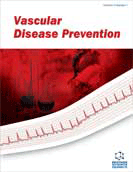Abstract
Selectins are important leukocyte adhesion molecules mediating the initial capture and rolling of leukocytes and therefore contributing to an effective recruitment of leukocytes to sites of inflammation. In animal models, blockade of P-, E-, or L-selectin-dependent leukocyte rolling has been shown to protect from several acute and chronic inflammatory diseases such as ischemia / reperfusion injury, asthma, psoriasis, and atherosclerosis. While selectins often act in an overlapping fashion novel pan-selectin antagonists have been developed with promising results in experimental studies. This led to the initiation of first clinical trials in patients with asthma and psoriasis. Interestingly, clinical trials aiming at blocking selectins in acute inflammatory diseases are still lacking, but patients suffering from stroke, myocardial infarction, or renal ischemia might benefit from a selectin blocking therapy if started early after onset of ischemia. In conclusion, blocking selectin function may have a role in disease prevention for both acute and chronic inflammatory diseases. But, since selectins in humans functionally differ from selectins in other species, results from studies in nonhuman species should be carefully translated into clinical trials.
Keywords: selectins, leukocyte recruitment, ischemia, atherosclerosis, stroke, myocardial infarction


